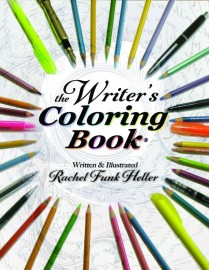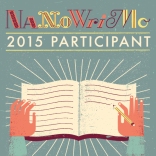 I recently saw an ad for Rachel Funk Heller’s, The Writer’s Coloring Book. If you click on the link to visit the website, it states: “Harness both sides of your writer’s brain with The Writer’s Coloring Book® and write better stories with less frustration.”
I recently saw an ad for Rachel Funk Heller’s, The Writer’s Coloring Book. If you click on the link to visit the website, it states: “Harness both sides of your writer’s brain with The Writer’s Coloring Book® and write better stories with less frustration.”
Donald Maass, author of Writing the Breakout Novel and founder of Donald Maass Literary Agency, said, “Rachel Funk Heller’s book doesn’t ask you to color between the lines. Instead, it gives you great worksheets and visual tools to draw your own unique story.”
I purchased the book in PDF format from the website for $10. However, if you can’t afford that (which I can’t, but you know…) you can find similar coloring pages with inspirational quotes by doing a simple search. Google “inspirational coloring pages for adults” or search Pinterest for “quote coloring pages printables.” Here’s one from ColoringShapes.com I plan to try: “Today is going to be awesome.”
The best part: coloring helps you deal with stress. Psychologist Gloria Martinez Ayala says, “When coloring, we activate different areas of our two cerebral hemispheres. The action involves both logic, by which we color forms, and creativity when mixing and matching colors.The relaxation that it provides lowers the activity of the amygdala, a basic part of our brain involved in controlling emotion that is affected by stress.” This isn’t new information, as Carl Jung was “one of the first psychologists to apply coloring as a relaxation technique.” (“Coloring Isn’t Just For Kinds. It Can Actually Help Adults Combat Stress,” Huffington Post)
So, take a break and color today! Then, come back here and let me know if it helped!
